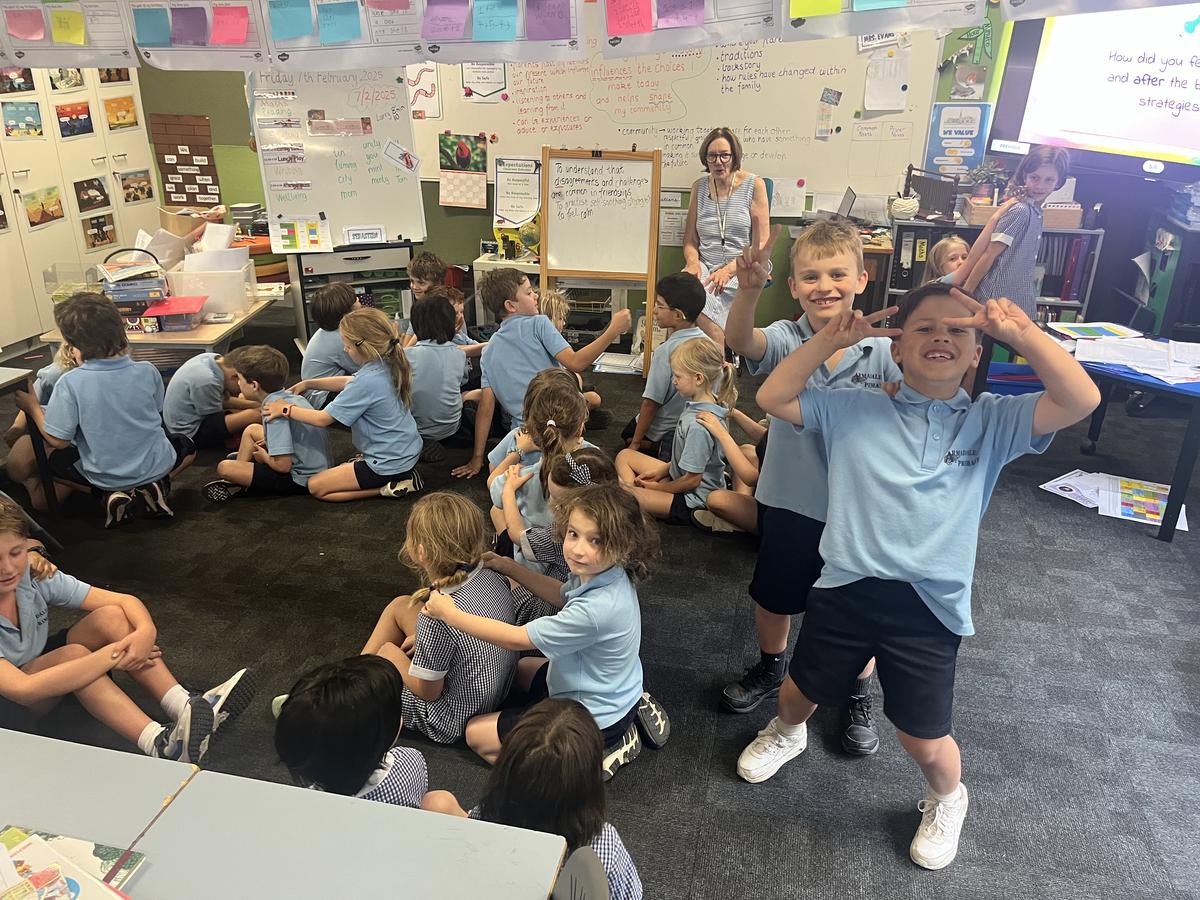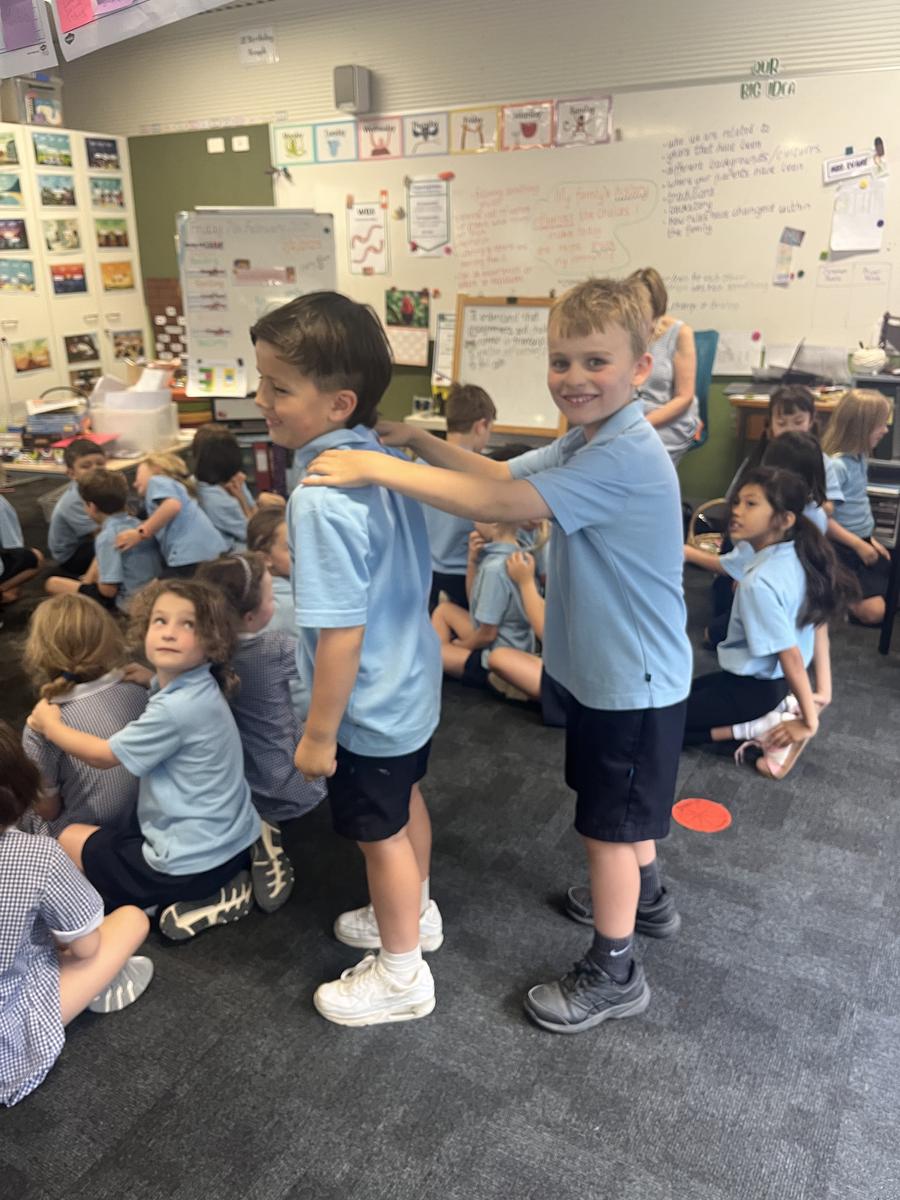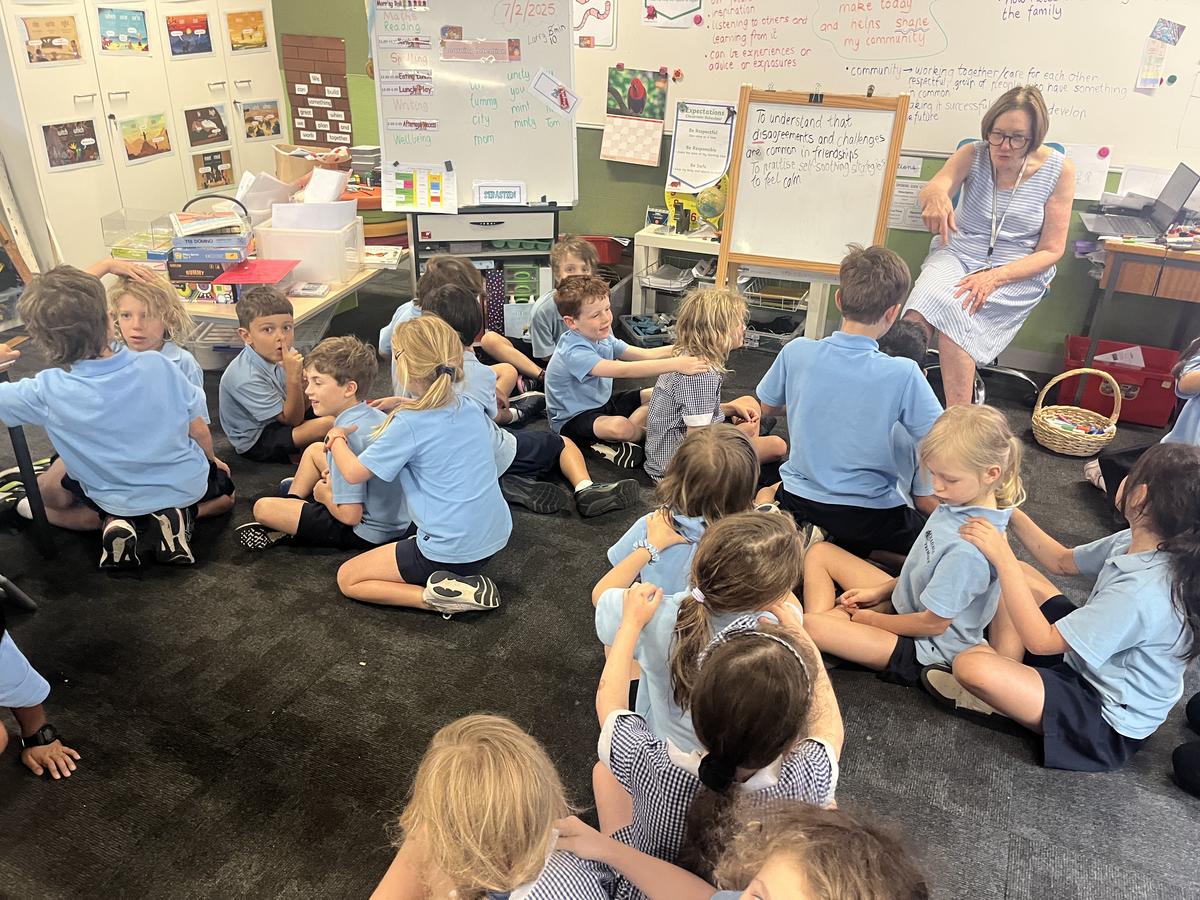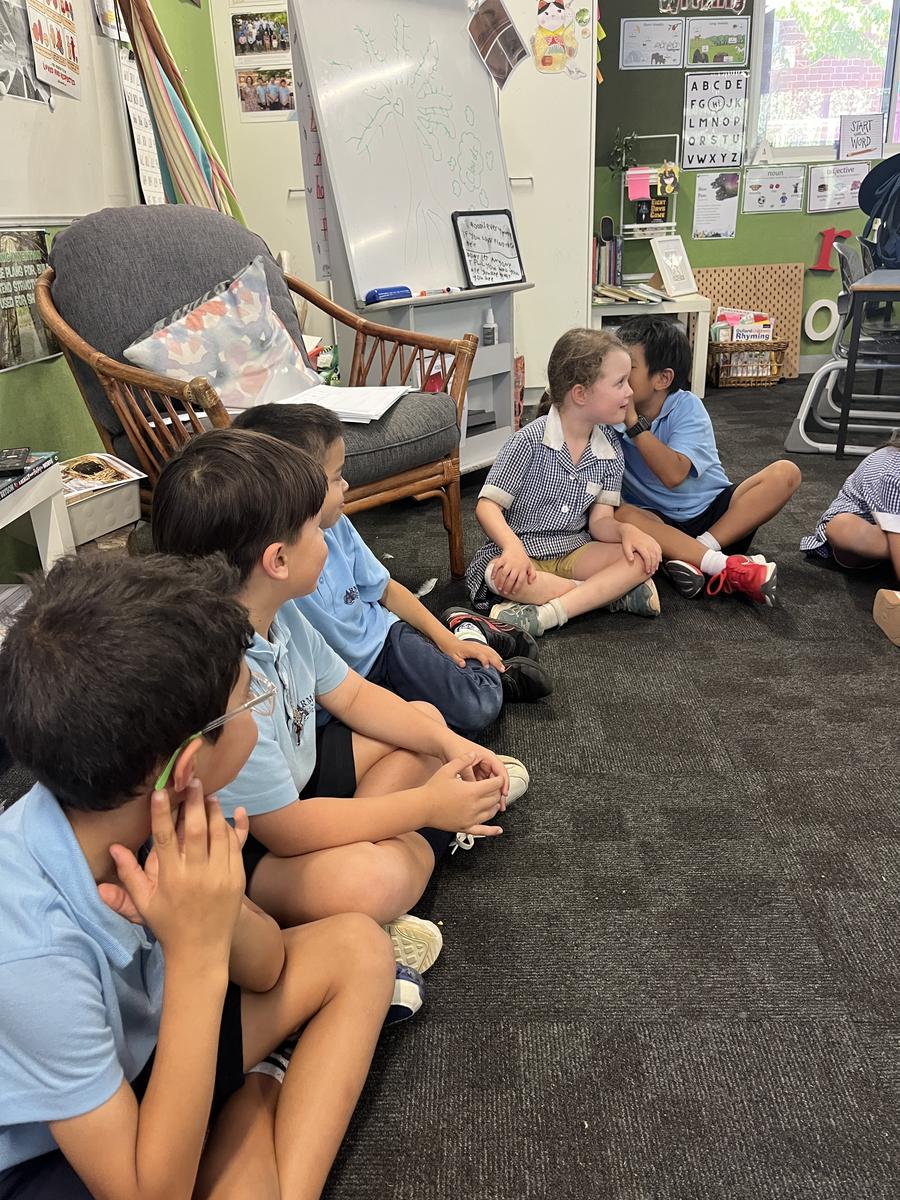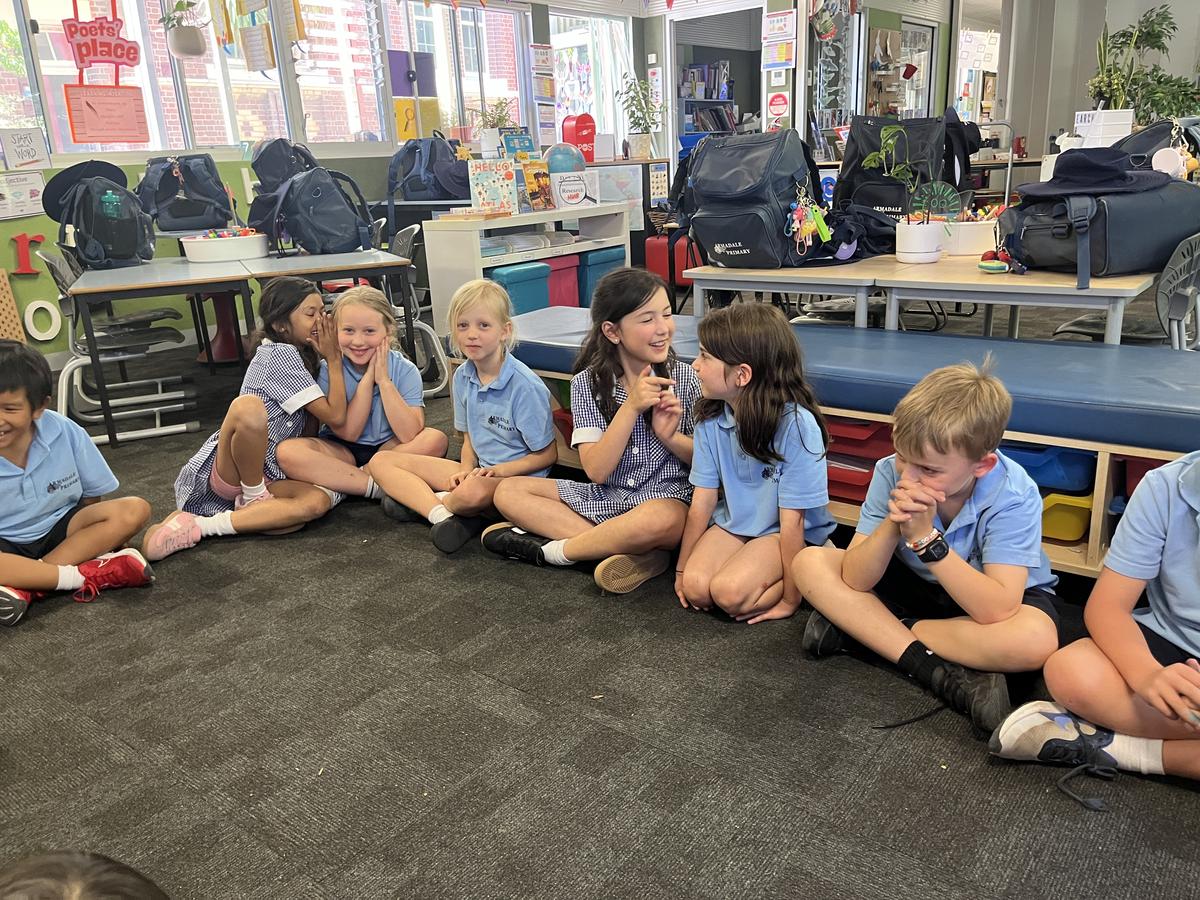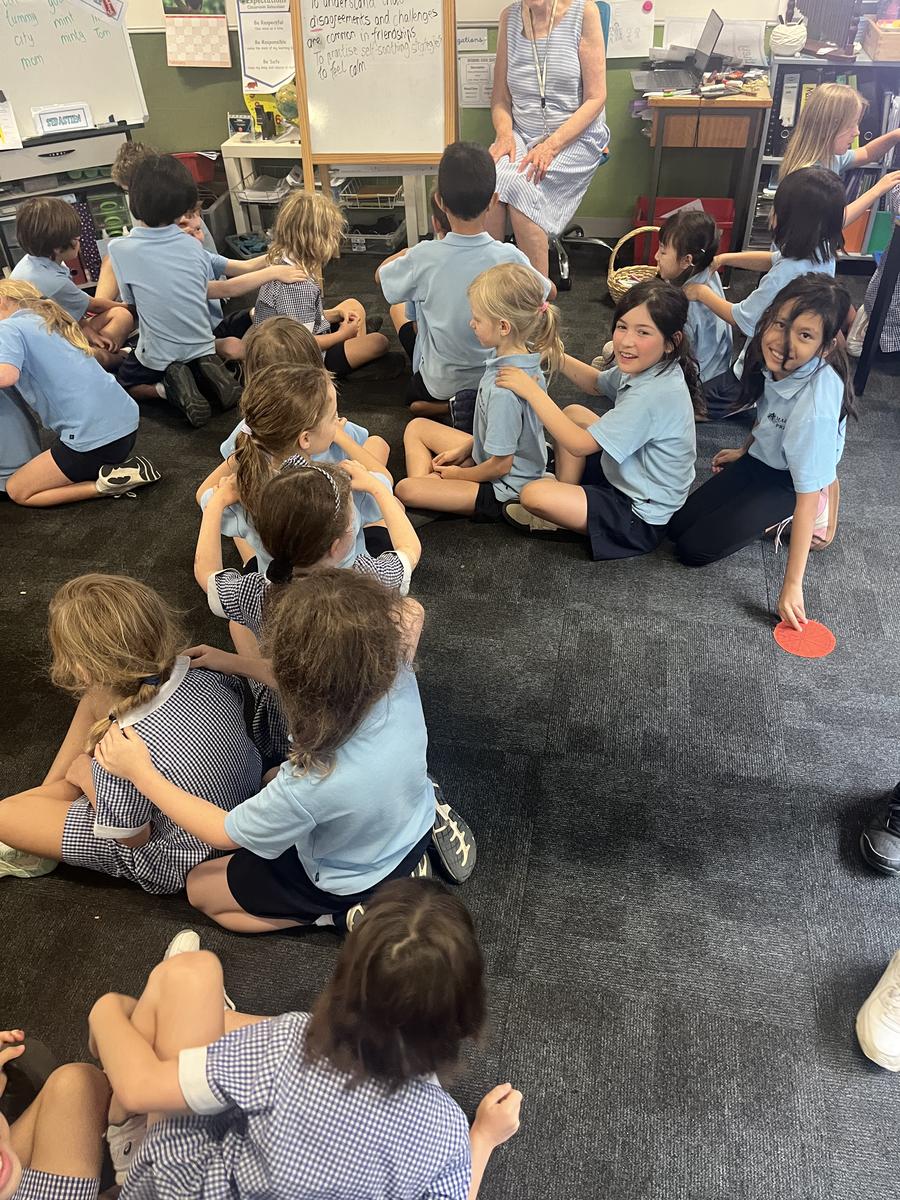Year 2 Bulletin
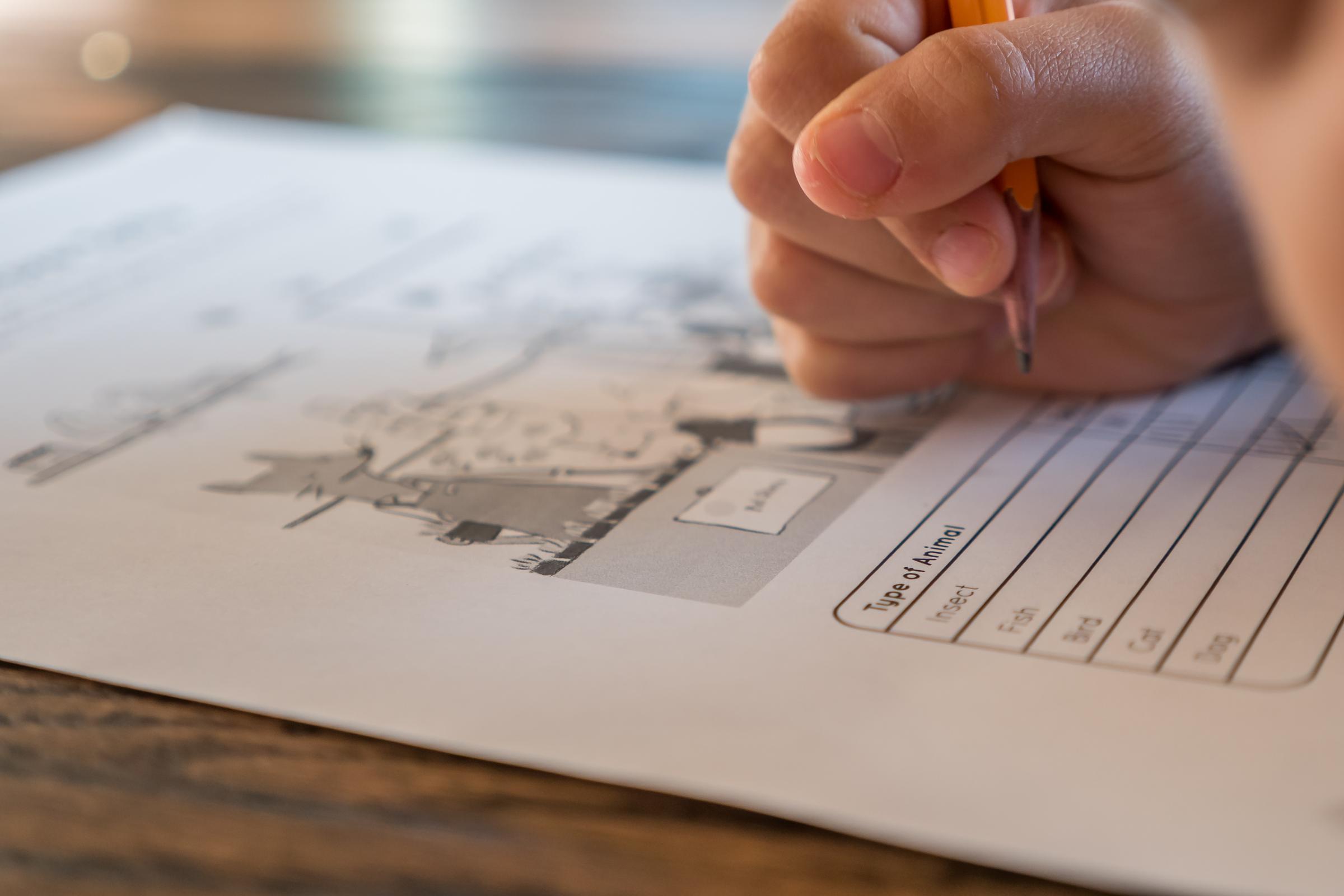
Wellbeing
Term 1 Focus
Our Wellbeing program this term has encompassed Mindfulness, Circle Time and the following programs:
- Open Parachute
- URStrong Friendology
- Respectful Relationships
Mindfulness
Mindfulness encourages children to ‘be in the moment’ and to notice their feelings without immediate reaction. This awareness creates a space between feeling an emotion and responding to it, which can be particularly helpful in managing anger or frustration, or dealing with anxiety. Over time, this practice can improve concentration, and foster a deeper understanding and ability to manage difficult emotions.
We practise mindfulness in our classrooms regularly but for short periods, at different times, depending on the need and circumstances.
Circle Time
Circle Time is where a group of children sit in a circle on the floor, facing each other. We come together as a year level or as individual classes on different occasions during the week. Fortnightly, we hold a Year 2 Level meeting, where issues or concerns that involve all of us, are discussed.
Circle Time offers a time for listening, developing attention span, promoting oral communication, and learning new concepts and skills. It involves auditory memory, sensory experiences and socialisation.
Circle Time provides an opportunity for students' moral, social and emotional development by developing a caring ethos, encouraging democratic values, positive relationships and behaviour, self-discipline, self-esteem and motivation.
When we come together as a Circle, the expectations for this gathering are clear and explicit:
- To value everyone's contribution without putting any member down.
- To raise their hands when they want to speak.
- To not interrupt anyone when they are talking.
- To take turns at all times.
- To be allowed to pass if they don't feel like speaking.
Open Parachute
This program is based on teaching specific skills needed when dealing with relationships at school. Each lesson is based on documentary videos showcasing Australian youth sharing their experiences of overcoming struggle. Exercises follow the videos, with peer role-modelling. It is designed to help students develop resilience while also creating a sense of safety in the classroom, enabling students to explore their own experiences of struggle and strategies to overcome difficulties.
We have covered different issues in a series of lessons, including:
- Friendship Challenges and Choosing Kind Actions
- Staying Calm
URStrong Friendology
URSTRONG is a program aimed at creating a culture of kindness, by empowering children with friendship skills. They have developed a skills-based series of lessons that teach strategies based on concepts, skills and language that help children establish and maintain healthy relationships, manage conflict with kindness, and increase their overall resilience.
It provides practical relationship strategies to improve the social climate in classrooms and our relationships. It aims to equip students with the skills to manage their friendships while providing teachers and parents with a common language to support them.
Respectful Relationships
Respectful Relationships education is a core component of the Victorian Curriculum from foundation to year 12. It is all about embedding a culture of respect and equality across the entire school community.
The program supports schools and early childhood settings to promote and model respect, positive attitudes and behaviours. It teaches our children how to build healthy relationships, resilience and confidence.
To continue the learning at home:
- Support and encourage your child to share their emotions and feelings with you
- Check-in with your child. Ask how they're feeling and how things are going in their life
- Listen to their words and try to interpret them in your own words, so that you both understand each other
- Pay attention to any changes in their behaviour
- Make time to focus one-on-one, perhaps as a part of your daily reading routine
- Regularly practise relaxation breathing techniques or mindfulness together
- Help to identify the strategies that allow them to manage stress, and provide opportunities for them to use these. It could be as simple as some ‘alone’ time.
- Most of all, prioritise your relationship with your child, and enjoy each other’s company.
We look forward to a wonderful year ahead.
Jocelyn and Steph
Year 2 Team

